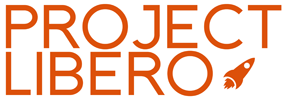I notice the small stuff, the gaps between things and where the edges are. It’s a useful skill to have as a coach. Helping me see the holes in a person’s narrative, the places where they are scared to admit the full truth of situations and perhaps where they can make a difference. It’s often their words which betray them.
 Sometimes though the skill can infuriate me. I read blog posts and note the inaccuracies and malapropisms, the spelling errors and typos. I wish I could leave these things but most of the time I feel compelled to let the author know of their mistake. Often I tell the author that I don’t want others to dismiss their excellent blog due to a simple mistake. Yet I wonder if that’s just me justifying my own pedantry – you see, I love language.
Sometimes though the skill can infuriate me. I read blog posts and note the inaccuracies and malapropisms, the spelling errors and typos. I wish I could leave these things but most of the time I feel compelled to let the author know of their mistake. Often I tell the author that I don’t want others to dismiss their excellent blog due to a simple mistake. Yet I wonder if that’s just me justifying my own pedantry – you see, I love language.
Growing up we didn’t have a lot of books in the house but there was a library van which came to our village every few weeks. Sometimes I would finish my books long before the van was due. I would read my parents’ books (a curious mixture of Georgette Heyer and Zane Gray with a few WWII true stories thrown in for good measure) but soon I had exhausted the family collection. Eventually, my mother – in frustration as much as kindness – suggested I read the dictionary. Before that point I had often read with a dictionary alongside me, checking words as I went but this was different. As a very small boy I had struggled to articulate my ideas and plans but with the dictionary came a rich and diverse stream of words. I grew fascinated by the power of description. The seemingly endless variety within the English language, agglomerative yet egalitarian. No matter where a word came from, Latin, French, old English, Gaelic, Nordic, German – all were welcome. Of course this made the spellings and phonetics a pain but I revelled in the complexity and the ability to explain myself accurately and fully.
Just as we move to a more globalised version of English with the potential to incorporate more variety, conversations across social media are being constricted by space limitations. Often brevity and simplicity win out. Simple errors such as their / they’re or your / you’re are explained away by the excuse “well you knew what I meant so what’s the problem?”. Similarly there is a drive to simplify English to make it easier to use, our functional vocabulary is reducing day by day. We talk of it being a “nice” view when there are any number of words that we could use which would be more descriptive and indeed accurate.
I understand that within organisations we need to keep our language simple and clear. The Campaign for Plain English has done superbly in their quest to reduce jargon from business communication, but for me I’d like there to be a balance. Just as art can take many forms from brutal functionalism to engaging cartoons so language needs to exist at several levels. The words in safety procedures need to be clear and unambiguous but if we are talking to teams about ideas and visions then our language needs to aim a little higher.
We need to elicit emotions, move hearts and minds – use words that will inspire and uplift. For those words to work they need to be precise and carefully chosen but above all rich in meaning and evocation.
I will leave you with the words of the author Melina Marchetta –
“Because without our language, we have lost ourselves. Who are we without our words?”

And grateful those folks are for your eagle eyes!